Events Overview GRK 2250/1 International Summer School 2019
GRK 2250/1 International Summer School 2019
-
14. - 19.07.2019
-
Dresden, Germany
The Dresden International Summer School (DISS) was held in Dresden between the 14th and 19th of July 2019. The goal of the Summer School was to bring master’s and PhD students together, who work on impact resistance of concrete structures and fiber-reinforced cement-based materials, and give them a comprehensive overview of the state-of-the-art research in the field. Besides the members of the GRK 2250, twenty international master’s and PhD students from various universities around the world participated at the event. The focus was on use of textile-reinforced concrete (TRC) and strain-hardening cement-based composites (SHCC) for strengthening of existing concrete structures against impact loading.
In the first day of the Summer School the invited researchers got familiar with the research concept of the GRK 2250 and with the high-performance cementitious composites, which are commonly investigated in the project. Various types of reinforcements were presented and clarified regarding their function and advantages and different specimen types were produced covering the entire range of meso-level experiments.
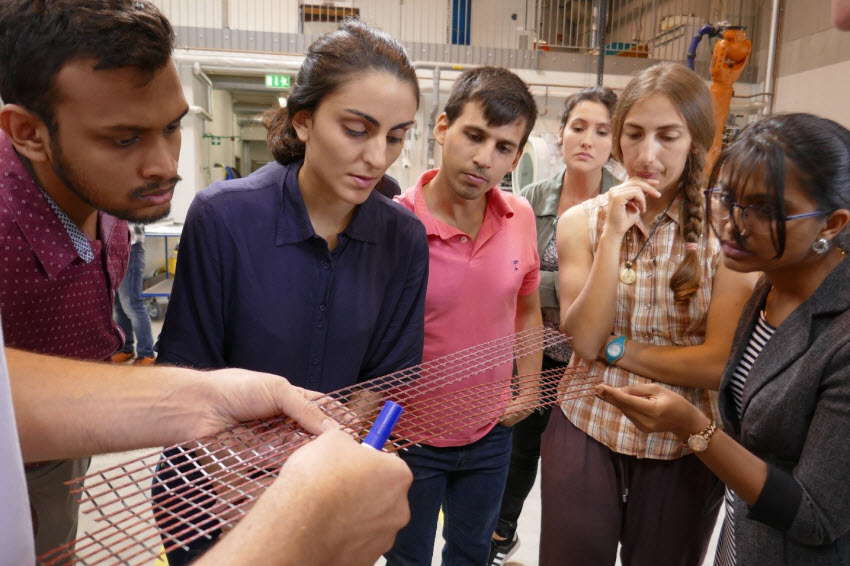
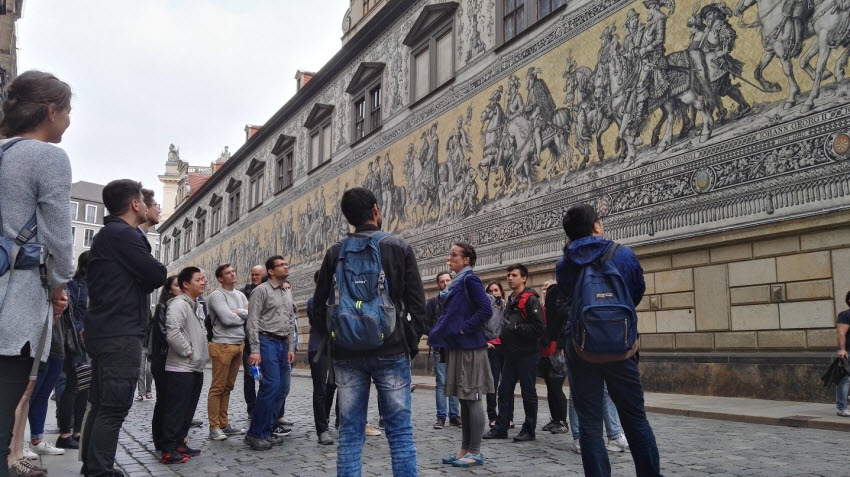
The second day of the Summer School was dedicated to the research presentations of the GRK 2250 doctoral and postdoctoral researchers. The evening social program included a guided tour through the historical center of Dresden.
In the third day of the event the associated GRK 2250 members gave short presentations on their research, while the prepared posters served as a good basis for detailed discussions in the breaks. Besides that, Prof. Edeltraud Günther (TU Dresden) gave a lecture on Sustainability and Resilience and Prof. Marco di Prisco (Politecnico di Milano) held a lecture on New Cementitious Composite Materials for Tunnel Safety.
The second part of the day was marked by experimental testing in the laboratory of the Institute of Construction Materials, in which composite specimens were tested with different reinforcement configurations under quasi-static and impact tensile loading. Same as during the production in the first day, the students documented their practical exercises in detail, which was necessary for a subsequent results evaluation.
In the next day Prof. Josko Ozbolt (TU Stuttgart), Assist. Prof. Ravi Ranade (University at Buffalo, USA) and Dr. Jaap Weerheijm (TU Delft, The Netherlands) held lectures on such topics as Dynamic Fracture of Concrete and SHCC for Infrastructure Resilience.
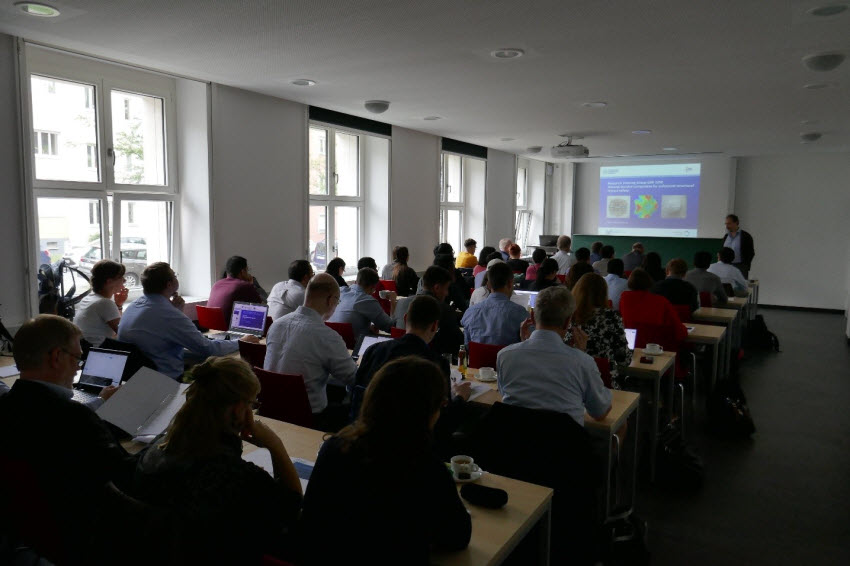
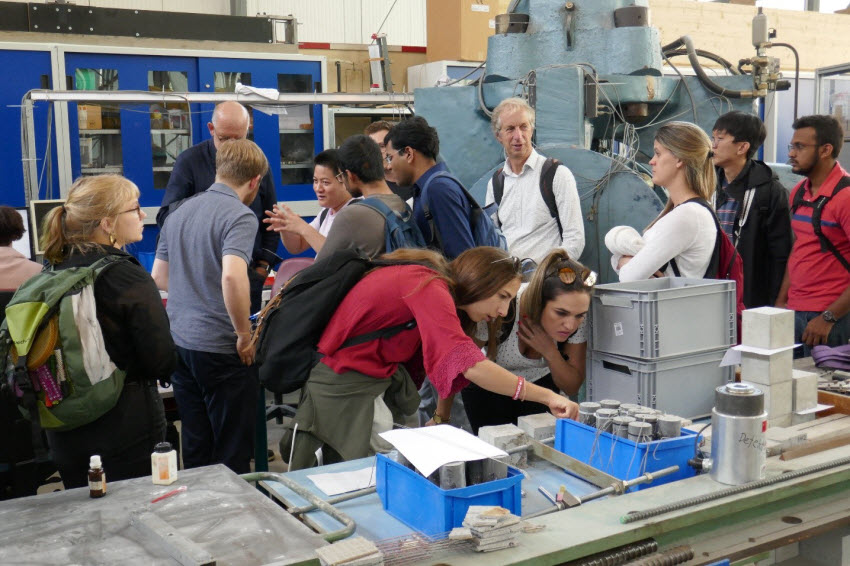
For getting a better insight into the structural level research done in the frame of the GRK 2250, the DISS participants had a guided tour through the lab of the Institute of Concrete Structures, where they could also follow a drop tower impact test on a large reinforced concrete plate.
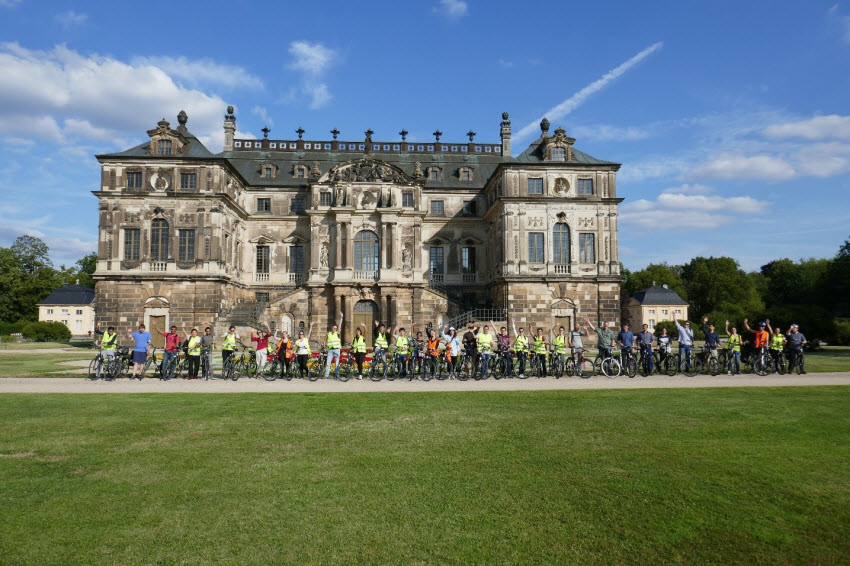
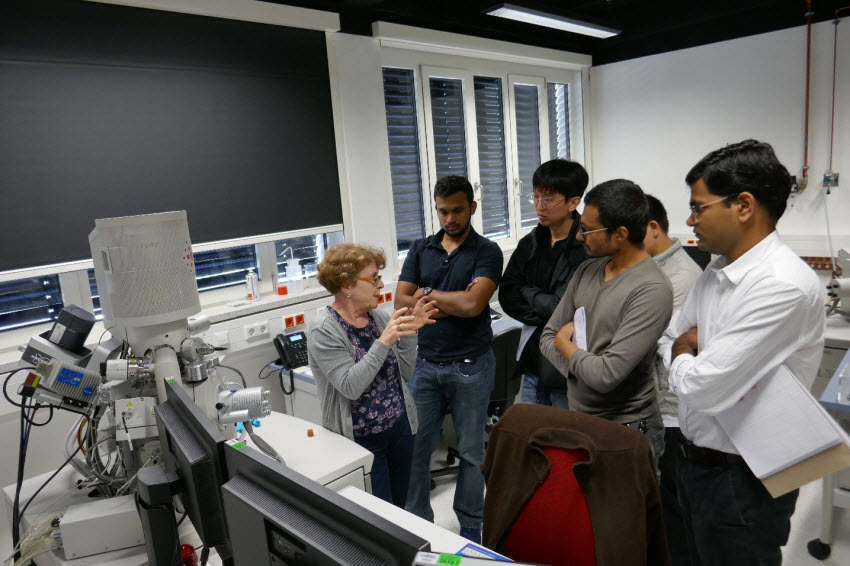
The fifth day of the summer school was dedicated to the evaluation of the practical exercises and of the obtained experimental results by the invited researchers. The evaluation was done in teams of five people, which allowed covering the entire range of performed exercises in an efficient and synergetic way. Besides the evaluation itself, the participants performed optical analyses of the tested specimens, such as Digital Microscopy and Environmental Scanning Electron Microscopy (ESEM).
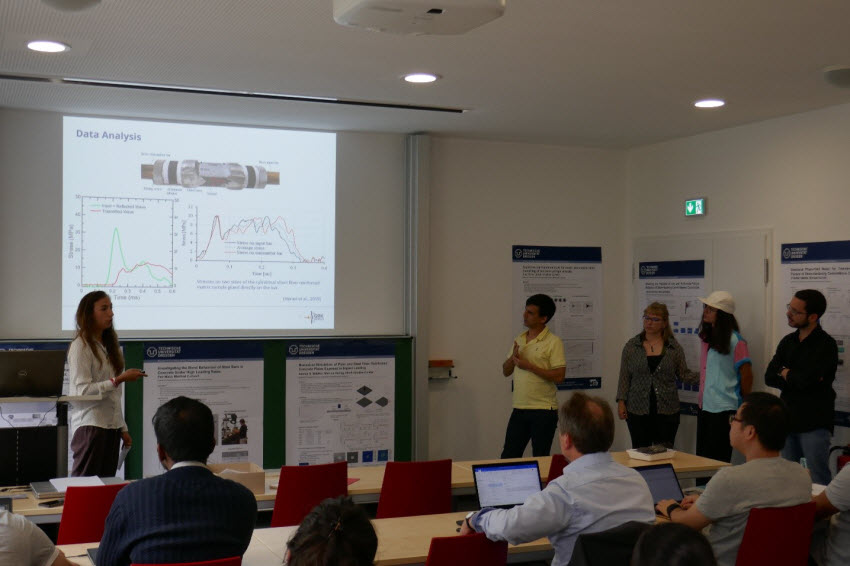
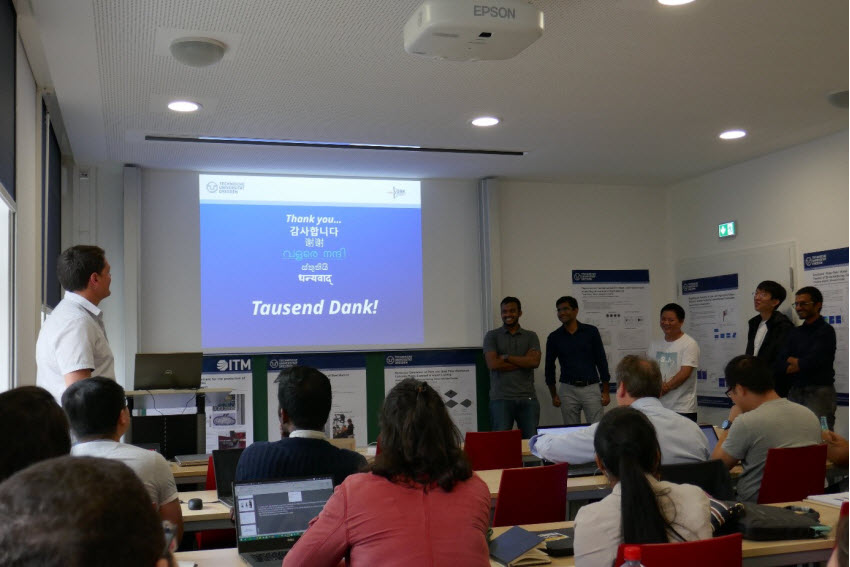
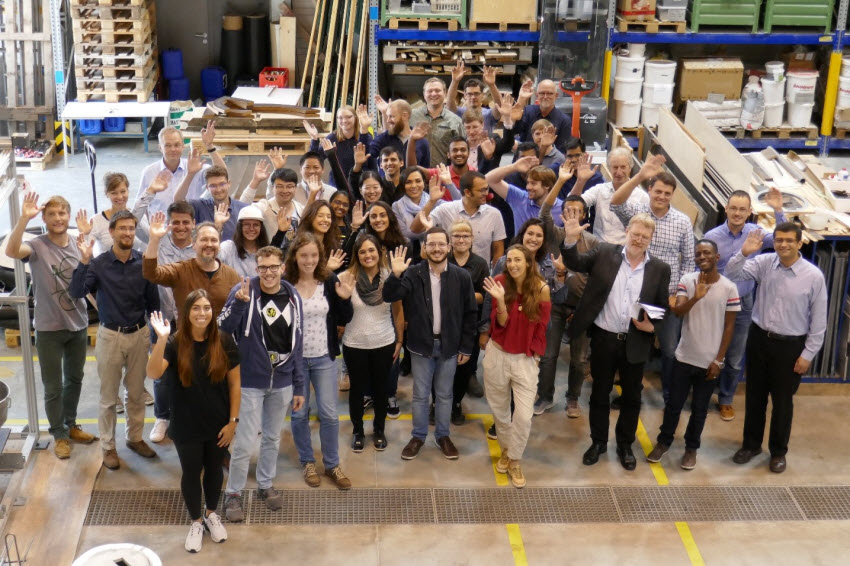
The teams did a great job both in terms of scientific evaluation and team work, which could be judged based on their well-structured and detailed presentations.


